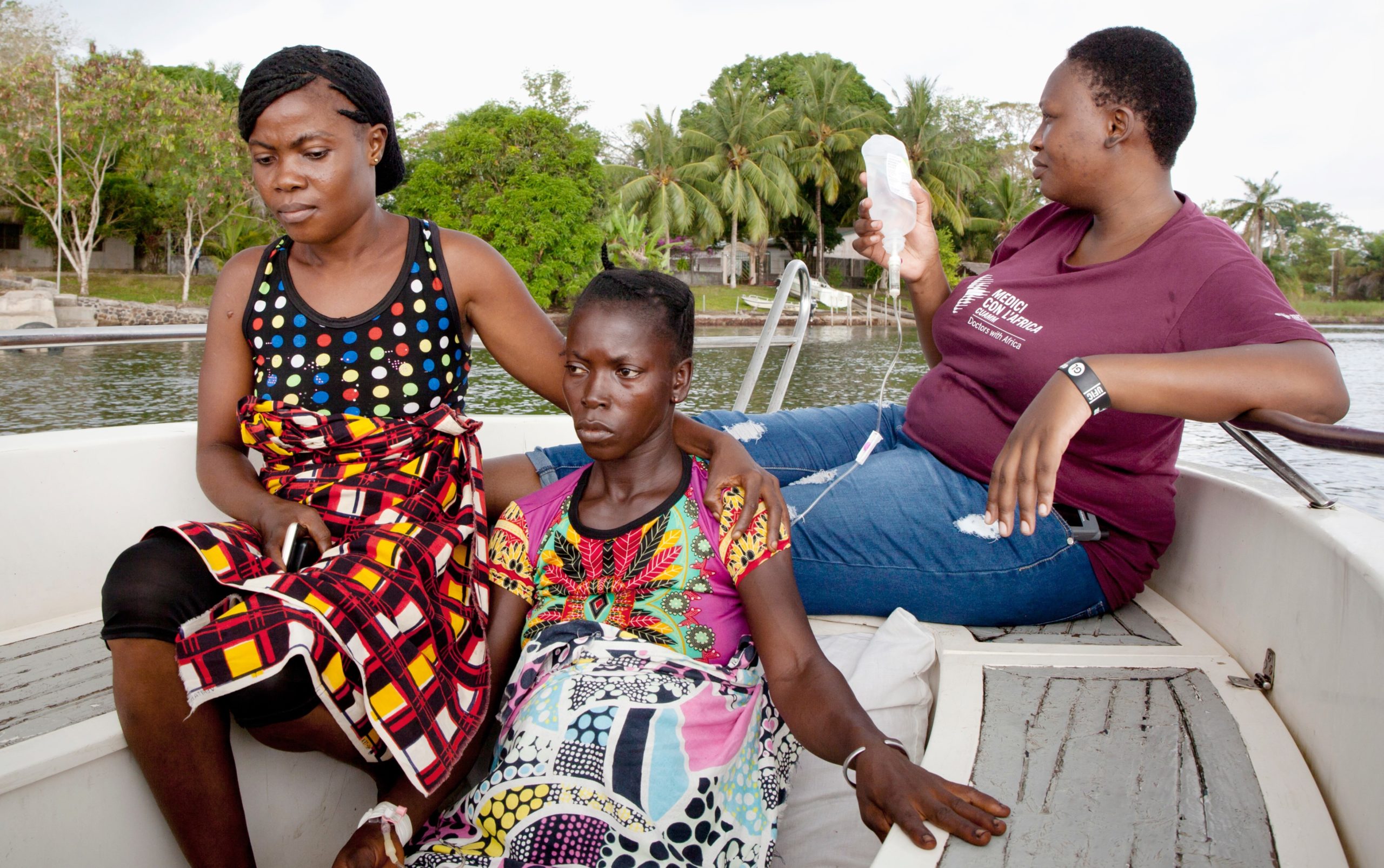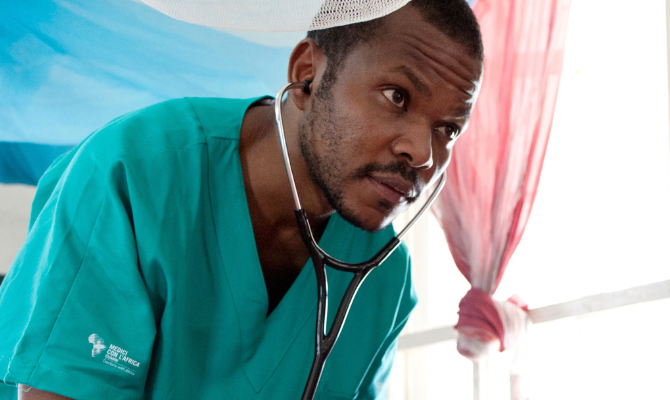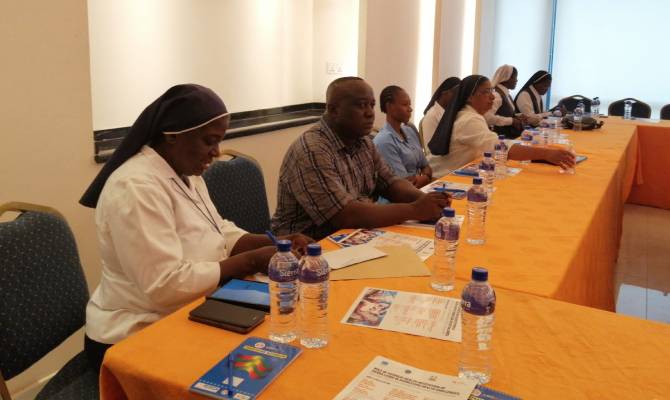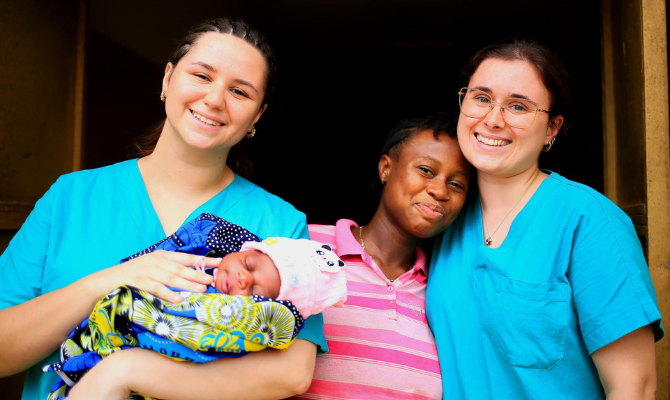«I want to remember the story of a mother, with two different endings. Memunatu is a 26-year-old woman in her second pregnancy who lives in Bonthe, a remote village in Sierra Leone. With her husband, she was very scared because two years ago, in her first pregnancy, she had gone into labour at home and when she arrived at the hospital to give birth, the doctor was not there. Therefore, she had first been sent to the UBC hospital in Muttru, an hour and a half away both by boat and by car. Then, due to the lack of a dedicated resource person, she was referred to the hospital in Serabo, another hour by car. When they arrived there, it was too late and the twins she was expecting died during the caesarian section. When I met her, I saw the fear of that woman and her husband, almost their resignation that they would also lose their next baby.
Seeing that, again, something was wrong, the husband urgently called the Red Cross operator, saying that his wife was about to give birth and needed help. The Red Cross operator called me on the private line because the husband could not get to the hospital directly and, in the end, we managed to send a boat to pick her up. She arrived at the hospital after a three-hour journey, we had already prepared the operating theatre and thirty minutes later mother and baby were fine! That is precisely why the outcome of this story means so much to me. It is an expression of CUAMM’s commitment in the field and carries a message of hope. We cannot save everyone, but even one makes a difference».
People and skills
«Let me recap my experience. I spent the last 4 years in Sierra Leone. This was my first long professional mission outside of my country. A different and challenging context and therefore an intense experience but always with a strong willingness to “get in the game” and learn. I started working in Bonthe as medical doctor focused on maternal and child health; then I moved to Pujehun and Freetown where I held a more advanced role with more responsibilities. I’ve definitely learnt and grown a lot and I want to thank CUAMM for this because it has always believed in me and invested in my training. Whenever I was faced with a complex situation or had doubts about how to manage it, I could always count on the support of doctor Enzo Pisani who was based in Freetown.
I’ve become an EmONC Advisor, an Emergency Obstetric and Newborn Care advisor, and I’ve trained 37 clinical mentors across the Country who are now mentoring 292 healthcare workers in the 16 districts of Sierra Leone on the seven “signal functions” as per WHO standard, seven key obstetric services that has been identified as critical to basic emergency obstetric and newborn care. It has been a capacity building pathway and I am proud of it.
Sierra Leone consistently ranks as one of the deadliest places on Earth to have a baby, particularly in some districts such as Bonthe, a remote island in the south of the Country. It can be reached by boat and during the rainy season it is all flooded with water and mud. Therefore, access to health services in this area, particularly to assisted deliveries, is very complex due to its location and the characteristics of the context. So personal life is not easy there: we were the only expats and my wife was the only one with white skin, besides the fact that we didn’t speak local languages. In Pujehun the accessibility to services is “easier”, however the maternal mortality rate is still very high. Several factors determine this: firstly, the lack of qualified human resources and the few that do exist live in the biggest cities. Many health workers are volunteers, meaning that they do not receive a salary, or at least not regularly, and this severely undermines their motivation and their commitment to work. Moreover, mainly for cultural reasons, people in the villages tend to rely on traditional healers».
This is the meaning of CUAMM’s commitment to give mothers and children another chance.

© Photographs by Valeria Scrilatti





